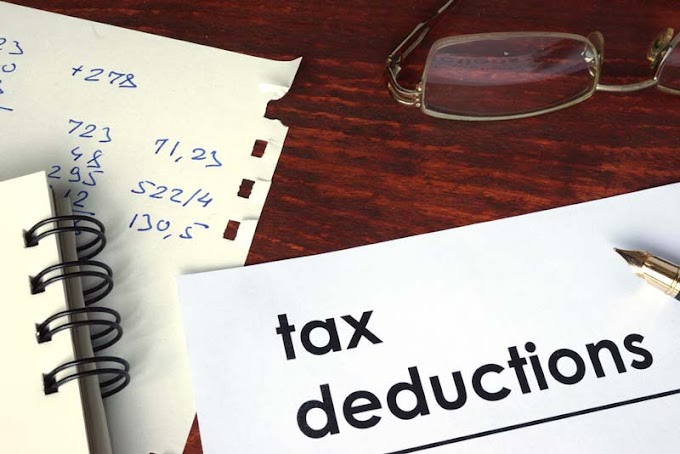Paying off student loans can be a daunting task, but did you know that there's a tax credit available to help ease the burden? The Student Loan Interest Tax Credit can help reduce your tax liability and save you money in the long run. In this article, we'll cover everything you need to know about this tax credit, including how to qualify, how much you can claim, and how to claim it.
What is the Student Loan Interest Tax Credit?
The Student Loan Interest Tax Credit is a tax credit that allows borrowers to deduct up to $2,500 of the interest paid on their student loans from their taxable income. The credit is available to both undergraduate and graduate students who are repaying student loans.
Who is Eligible for the Student Loan Interest Tax Credit?
To be eligible for the Student Loan Interest Tax Credit, you must meet the following criteria:
- You must have paid interest on a qualified student loan during the tax year.
- You must have a modified adjusted gross income (MAGI) of less than $85,000 if you're single, or $170,000 if you're married and filing jointly.
- You cannot be claimed as a dependent on someone else's tax return.
How Much Can You Claim with the Student Loan Interest Tax Credit?
The amount of the Student Loan Interest Tax Credit you can claim depends on how much interest you paid on your student loans during the tax year, up to a maximum of $2,500. The credit is calculated as 20% of the interest you paid, so to claim the full credit, you must have paid at least $2,500 in interest.
How Do You Claim the Student Loan Interest Tax Credit?
To claim the Student Loan Interest Tax Credit, you must file Form 8917 with your tax return. You'll need to provide the name of your lender, the amount of interest you paid, and the amount of the credit you're claiming.
Can You Claim the Student Loan Interest Tax Credit if You're Still in School?
Yes, you can claim the Student Loan Interest Tax Credit even if you're still in school, as long as you meet the other eligibility requirements. However, you cannot claim the credit for any interest paid on loans that are in deferment or forbearance.
Can You Claim the Student Loan Interest Tax Credit if You're Married Filing Separately?
If you're married and filing separately, you cannot claim the Student Loan Interest Tax Credit.
How Does the Student Loan Interest Tax Credit Affect Your Tax Liability?
The Student Loan Interest Tax Credit can help reduce your tax liability by reducing the amount of taxable income you have. For example, if you paid $2,500 in student loan interest and claim the full credit, your taxable income will be reduced by $2,500.
How Does the Student Loan Interest Tax Credit Compare to Other Education Tax Credits?
The Student Loan Interest Tax Credit is just one of several tax credits available to help offset the cost of education. Other credits include the American Opportunity Tax Credit and the Lifetime Learning Credit. Unlike the Student Loan Interest Tax Credit, these credits can be used to offset the cost of tuition and other qualified education expenses, not just the interest on student loans.
What Happens if You Don't Qualify for the Student Loan Interest Tax Credit?
If you don't qualify for the Student Loan Interest Tax Credit, there are other options available to help reduce the cost of repaying your student loans. These include income-driven repayment plans, loan consolidation, and loan forgiveness programs.
Conclusion
The Student Loan Interest Tax Credit can be a valuable tool for borrowers looking to reduce the cost of repaying their student loans. By deducting up to $2,500 of the interest paid on your student loans, you can lower your tax liability and save money in the long run. Remember to check your eligibility and claim the credit by filing Form 8917 with your tax return.
FAQs
Can I claim the Student Loan Interest Tax Credit if I didn't pay $2,500 in interest?
Yes, you can claim a partial credit for the amount of interest you paid, up to a maximum of $2,500.
Can I claim the Student Loan Interest Tax Credit if I paid off my student loans during the tax year?
Yes, you can still claim the credit for the interest you paid on your loans during the year, even if you paid off your loans.
Can I claim the Student Loan Interest Tax Credit if I'm on an income-driven repayment plan?
Yes, you can still claim the credit if you're on an income-driven repayment plan, as long as you meet the other eligibility requirements.
How often can I claim the Student Loan Interest Tax Credit?
You can claim the credit once per tax year, for the interest you paid on your student loans during that year.
Is the Student Loan Interest Tax Credit refundable?
No, the credit is not refundable, which means it can only reduce your tax liability to zero. Any excess credit cannot be refunded to you.







